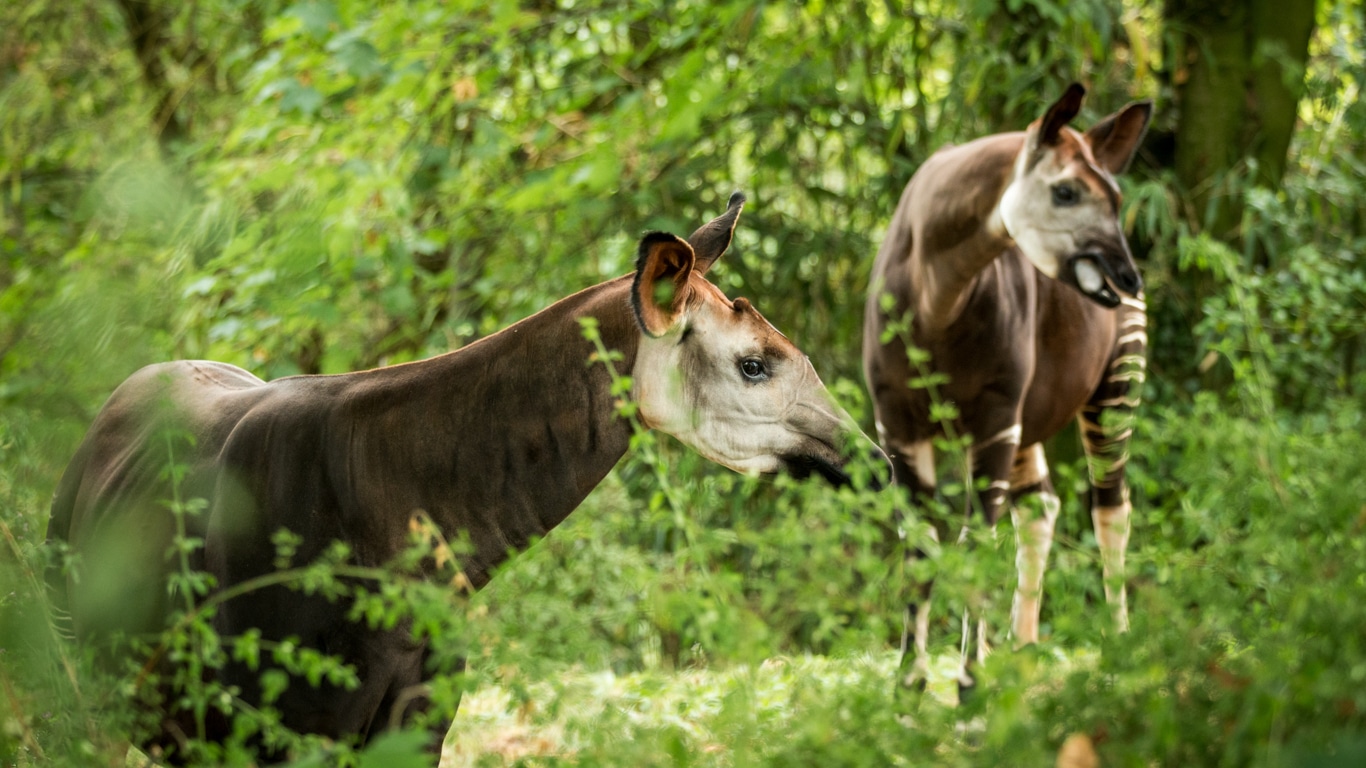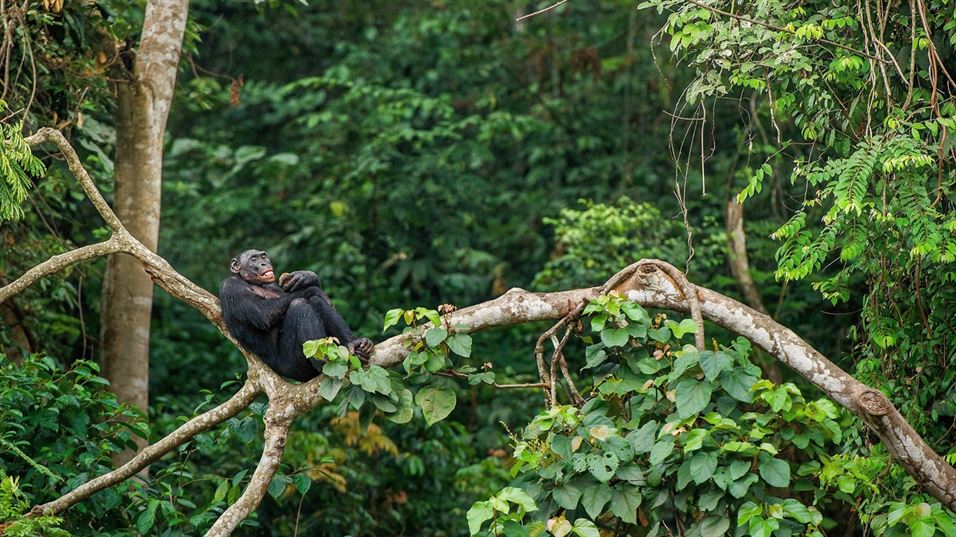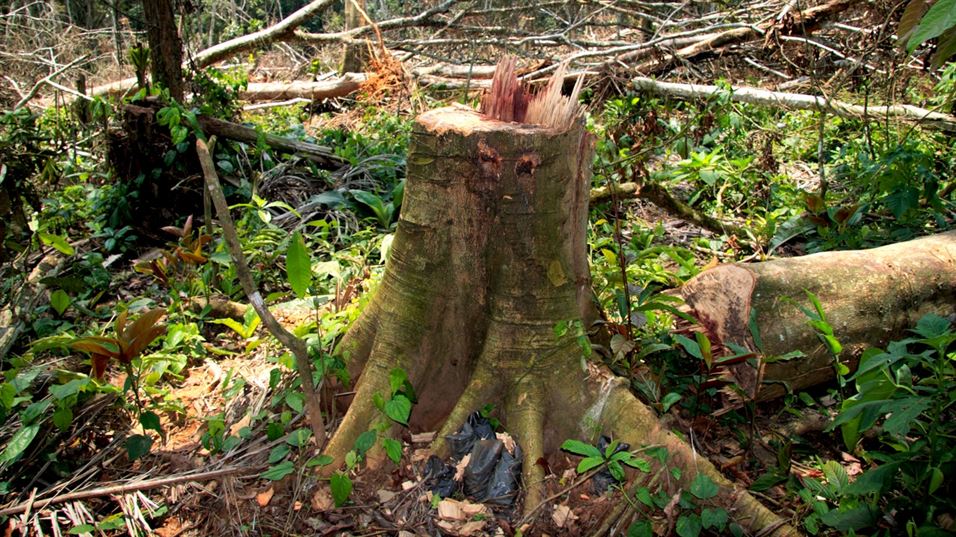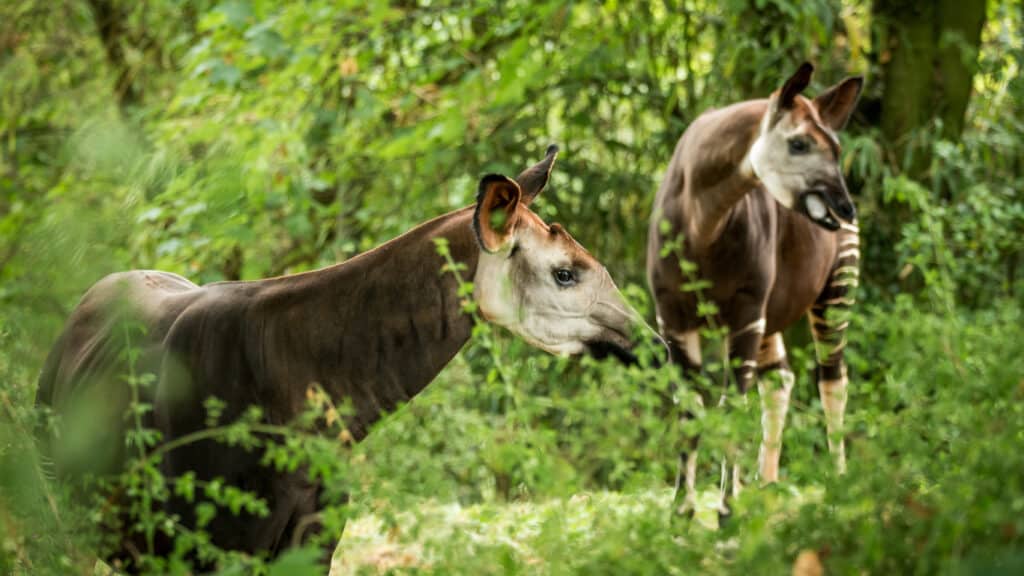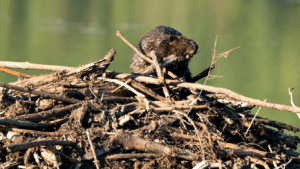Timber transport roads are planned for 2024 in the Ngazi forest, an ecological haven connected to the famed Yangambi Man and Biosphere Reserve in the Democratic Republic of the Congo (DRC). Ngazi is home to okapi (also known as the “forest giraffe”), chimpanzees, pangolins and the Afrormosia tree - an endangered hardwood traded in global markets.
The Yangambi Biosphere Reserve is at the heart of the Congo Basin and is the world’s second-largest tropical rainforest. It can store one-third more carbon over the same area of land than the Amazon. The proposed industrial logging concession, belonging to the Norsudtimber group, exposes the Ngazi forest to commercial hunting, charcoal burning and slash-and-burn agriculture, the leading cause of deforestation in the Congo Basin. Being at the very center of the Congo Basin, the Yangambi Biosphere Reserve requires urgent protection.
“Ngazi forest is an important biodiversity reservoir that could eventually help repopulate surrounding areas,” says Noeline Raondry Rakotoarisoa, UNESCO’s director responsible for its African network of reserves. Rakotoarisoa adds that Ngazi provides mammals with a wildlife corridor that lets them roam the terrain and maintain healthy populations. It also successfully shelters the center of the Yangambi Reserve from human encroachment. Some people travel as far as 40 kilometers (25 miles) to exploit natural resources in the reserve. They mine gold, log trees, burn patches of forest and shoot small mammals for urban wildlife markets.
There is official evidence that Norsudtimber is one of the top exporters of Afrormosia into Belgium, the main gateway for this endangered tree species into the EU. Sodefor, Norsudtimber’s parent company, claimed it had no knowledge of the documentation confirming that Ngazi was a fundamental part of the biosphere reserve. “But we are in contact with stakeholders… to contribute to the Yangambi Biosphere Reserve and its biodiversity objectives,” a Sodefor spokesperson said.
“The importance of the Ngazi forest cannot be overstated. It is an integral part of the Yangambi Biosphere Reserve which is home to an abundance of fauna and flora and forms part of one of the world’s major carbon sinks,” says Tayla Lance of Animal Survival International.
“Forests within the Congo Basin are resilient to unfavorable conditions, but human encroachment poses critical consequences that nature cannot rapidly recover from. The deforestation of the Amazon forest has overshadowed the importance of the Congo Basin. Now, the world urgently needs to turn its attention to the planet’s second-largest rainforest that is in dire need of protection.”

